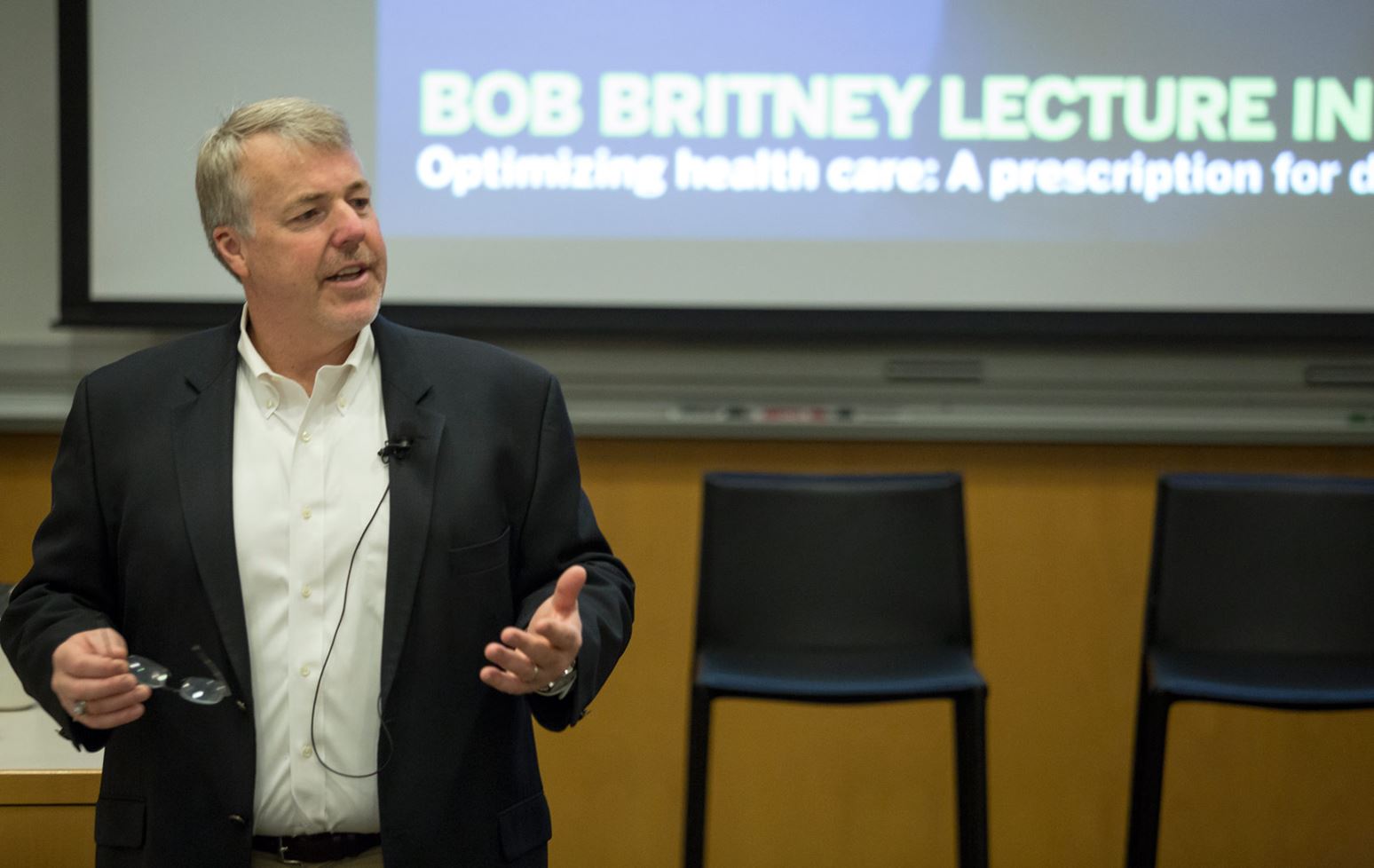Achieving a health-care system that is both cost-effective and produces better patient outcomes faces many challenges.
But advances are being made, as attendees learned at an Idea Forum called Optimizing health care: A prescription for delivering patient value.
Led by David Barrett, MBA ’04, PhD ’14, the Executive Director of the Ivey International Centre for Health Innovation, and Research Associate Alexander Smith, HBA ’13, industry panellists examined the barriers to efficient and cost-effective health care. The event was held May 9 at Ivey’s Tangerine Leadership Centre in Toronto.
Event panellists:
Neil Fraser, MBA ’83 - President of Medtronic Canada and Regional Vice-President – Canada
Brian Lewis - President and CEO of MEDEC
Aleksandar Stosic - President and CEO of Stosic & Associates
Related to this story
Each panellist gave a brief presentation on his work before tackling questions facing the sector.
The future of health-care supply chain
Neil Fraser:
“There needs to be an understanding of the value of what they are buying. Currently there is an over-emphasis on the price, and so it becomes a spreadsheet exercise instead of an understanding of the outcomes that accrue to patients.”
Aleksandar Stosic:
“When you look at the value side of the equation, unfortunately, value in the current system is too equated with the actual size of the purchase order rather than actual outcomes in the patient environment and for the patients themselves.”
Towards a more efficient system
Brian Lewis:
“A lot of people involved in the provision of health care are all nodding their heads about value-based health care that it makes sense. But if you look at hospital CEOs, most of their performance reviews are about saving costs up front. And some of these solutions are going to involve a little time to demonstrate that the return on investment and better outcomes are there.”
Stosic:
“There is plenty of reticence both on the outside and the inside of Queen’s Park to change but it’s ultimately up to the leadership to take that by the reins and drive some progressive change.”
Barriers to consolidation
Stosic:
“Other provinces and certainly other global regions have taken the lead in terms of practice of that type of consolidation. Certainly the opportunity to leverage the province’s full buying power through a more consolidated environment would see significant savings in the system. I think Ontario is on course in terms of becoming a more consolidated environment.”
Lewis:
“I think part one of the question is: What are you buying? Are you using that volume that you have to get lower upfront price or are you buying better outcomes? And how do you get to those outcomes? … How do we get our procurement practices to be better integrated into the whole?”
Fraser:
“I think there has been a lack of physician involvement in this whole discussion. Nobody understands the outcomes better than physicians. But I think physicians also have to be re-educated a bit, because it’s not about what you like or what you want. It needs to be about what the patient’s outcome is.”



